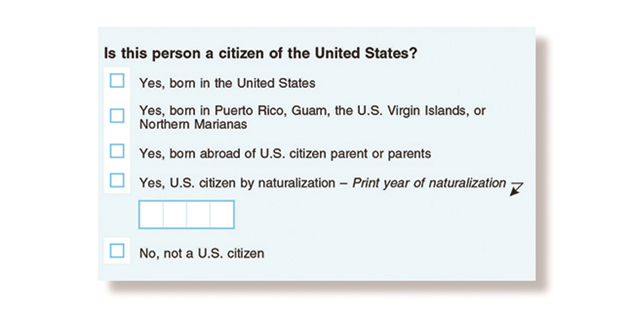The following is a blog post from Jeanine T. Winfrey, Esq., Director of Immigration Counseling Services in the Vineyard Community Center of Westerville, Ohio. Read more about the 2020 census and why a citizenship question will decrease participation rates and lead to unfair results here.
1. Every person living in the United States has a right to be counted for purposes of fair representation.
In the 2016 decision Evenwel v. Abbott, the U.S. Supreme Court unanimously decided in favor of “one person, one vote” and against “one voter, one vote.” The philosophical question they considered was whether a member of Congress or a state legislature represents the whole population of his or her district or only the eligible voters within the district. Ruth Bader Ginsburg wrote the opinion, stating: “Nonvoters have an important stake in many policy debates—children, their parents, even their grandparents, for example, have a stake in a strong public-education system—and in receiving constituent services, such as help navigating public-benefits bureaucracies.”
2. It is important that the Census be done accurately because it is the primary basis for the public and private allocation of goods and services.
Much of what government and private business will do during the next 10 years will depend on the data generated by the Census Bureau: The location of seats in Congress and in other legislative bodies, the allocation of $800 billion by federal and state governments to dozens of programs (see below), the location of stores and factories, and all sorts of other business and political decisions.
Health and social science research could also be skewed if immigrants avoid the national headcount. Public-health officials use census demographic information to identify statistical trends in health conditions and outbreaks and to target inventions based on the longitudinal data.
3. Immigrant communities are at risk of being undercounted and underrepresented if a citizenship question is added to 2020 Census.
Though the Census Bureau is forbidden by law to pass information about status on to the government agencies that deport people, adding a new question about citizenship in an age of immigration enforcement would turbo-charge fears among Hispanics and other immigrant groups. The result would be systemic undercounting and underfunding of states, cities and towns with substantial populations of Hispanics and other immigrants who have long been considered hard-to-count populations because of language, housing mobility and lack of education.
The Census is one of the basic mechanisms for fair and competent governance. A citizenship question on the 2020 Census will increase the likelihood of an undercount, threaten nonvoters’ constitutional right to be counted, and jeopardize the equitable distribution of public funds. The community in which every uncounted person lives will get a little less of almost everything it would otherwise be entitled to for the next decade.
Former director of the Census Bureau John Thompson said in February, “There are great risks that including that question, particularly in the atmosphere that we’re in today, will result in an undercount, not just of non-citizen populations but other populations that are concerned with what could happen to them.”
Regardless of where one stands on immigration, a politically-motivated, inaccurate Census will impact the integrity of the American system and its ability to promote equality and guard against the abuse of power.



